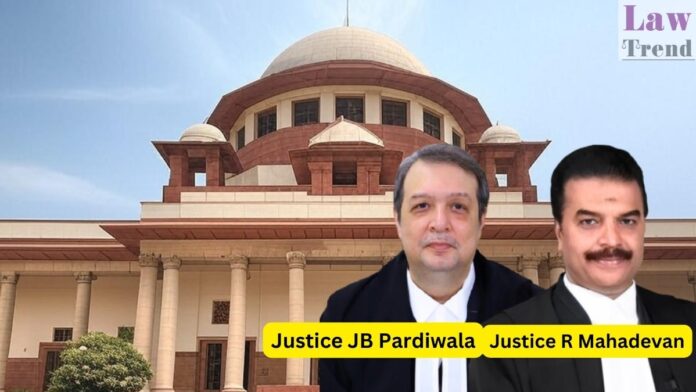In a significant ruling on May 16, 2025, the Supreme Court held that the mere fact that custodial interrogation is not presently sought by the investigating agency is not a sufficient ground to grant anticipatory bail. A Bench of Justices J.B. Pardiwala and R. Mahadevan made this observation while dismissing anticipatory bail petitions filed by
To Read More Please Subscribe to VIP Membership for Unlimited Access to All the Articles, Download Available Copies of Judgments/Order, Acess to Central/State Bare Acts, Advertisement Free Content, Access to More than 4000 Legal Drafts( Readymade Editable Formats of Suits, Petitions, Writs, Legal Notices, Divorce Petitions, 138 Notices, Bail Applications etc.) in Hindi and English.




